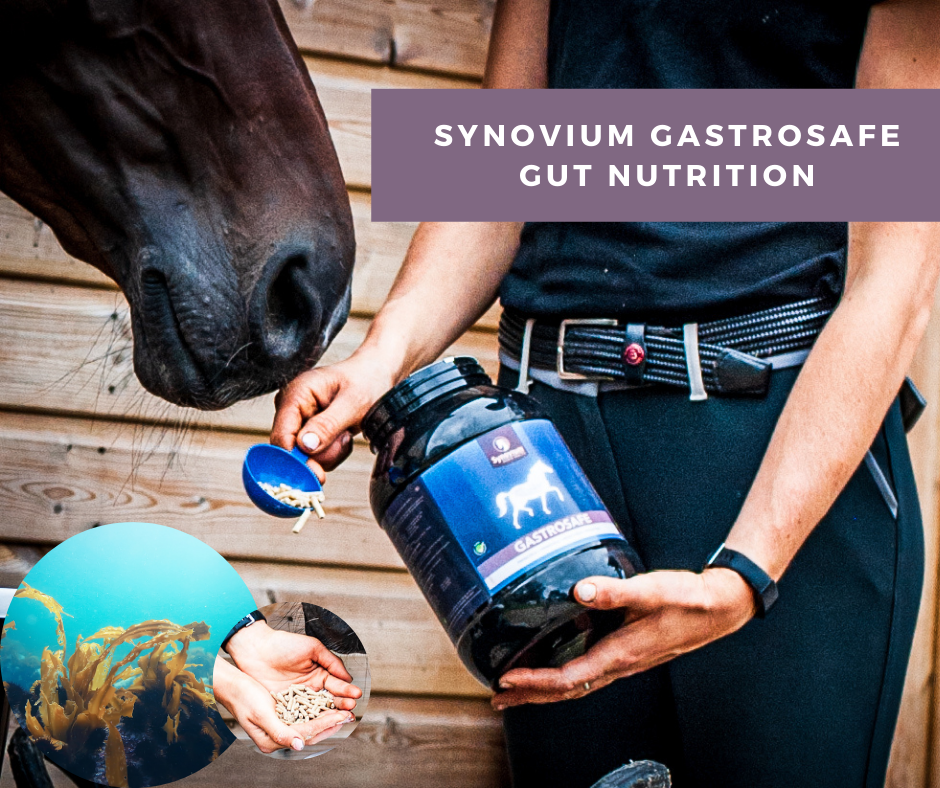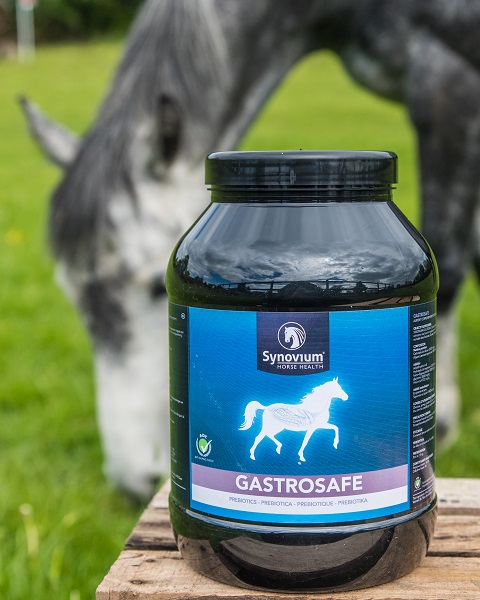Posted: 7th March 2022 | Back to news feed

The figures speak for themselves, with 60% of sports horses, 93% of racehorses and 50% of stabled foals showing to be affected by gastric ulceration. Equine gastric ulcers as been recognised more in recent years and it is important to understand the condition, why it can occur and the symptoms to look out for, to help prevent the high occurrence for future horses.

Simply explained, Gastric ulcers occur when the horse’s stomach acid comes into contact and attacks the protective lining of the stomach. Horse’s produce stomach acid 24/7, because they are designed to be grazers, the acid helps digest this consistent intake of food.
However, when horses go long periods without forage the acid builds up, increasing the risk of acid damage to the non-glandular proximal region. The high occurrence of gastric ulcers can be allocated to high concentrated feed / low forage diets, environment, and exercise related stress.
Common signs of gastric upset and ulceration include reduced performance and unwillingness to work, loose stools, poor condition, dull coat, re-occurring colic, and a poor / fussy appetite.
Management is key to preventing and resolving equine gastric ulcers, proper nutritional
support is an essential component to ensuring that horses maintain a healthy digestive system in these conditions.
Synovium’s vets understand this and have developed a nutrition gut supplement to aid in a healthy gut environment and support horses with gastric ulceration. Speaking with your vet if you have concerns about your horse’s gut is key to resolving the issue earlier.

Synovium Gastrosafe is a pellet form gastric aid, for feeding daily to horses in stressful situations and suffering with gut health issues.
What is in Gastrosafe?
- Seaweed (Laminaria hyperborean) – Creates a floating raft of gel which helps protect the non-glandular area of the horse’s stomach from excess acid.
- Fructooligosaccharides – proven prebiotics to provide food for and help stimulate good bacteria in the gut.
- Calcium and Magnesium – used for their alkaline properties as a natural anti acid to help neutralise the stomach environment.
- Glutamine – essential amino acid which studies show improve the performance of the gut
- Threonine an essential amino acid which studies have shown is important to produce mucin in the gut
Providing a low stress environment, consistent forage and a proven nutrition gut supplement is highly recommended to gain optimal gut health for your horse.
Synovium Horse Health, Vetmarx https://www.synovium.co.uk/
The Equestrian Index newsfeed is compiled from articles submitted by advertising members and expresses the opinions of those members. Watsons Directories Ltd shall not be held liable for any inaccuracies or mis-statements therein.
